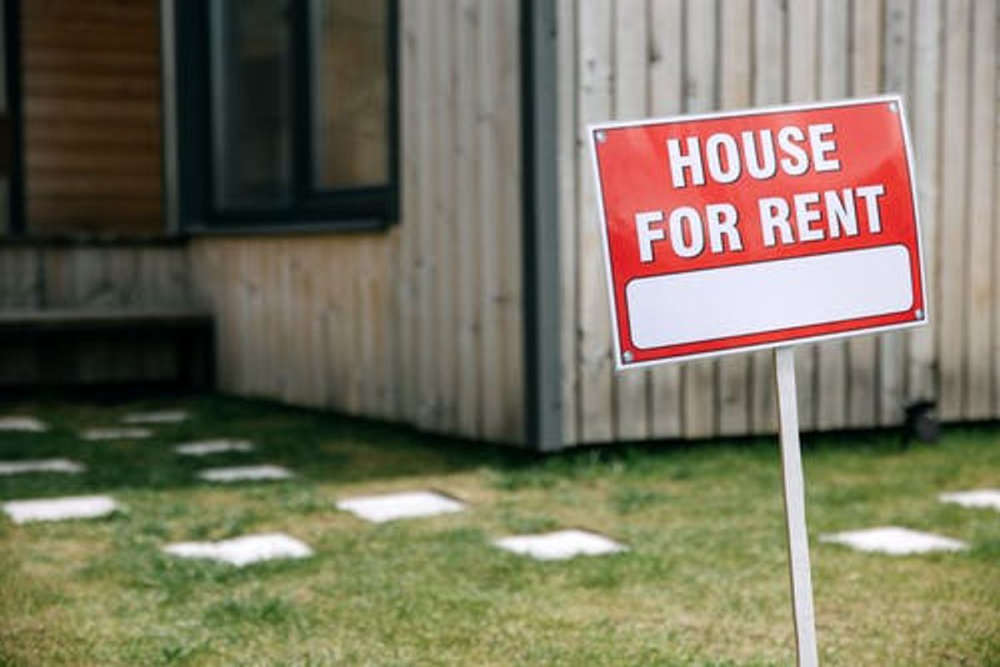
The States Assembly is being asked to declare a 'housing affordability crisis' and agree to take action to resolve it.
Before resigning from government, former Housing Minister Senator Sam Mézec worked on a report to outline the vision for providing new homes and setting the terms for which the housing market operates.
The Housing Policy Development Board report was given to the Chief Minister in October 2020, but is yet to be published.
Senator Mézec says it's in the public interest to now force these issues onto the political agenda.
House prices have continued to surge, with one bedroom flats costing around £300,000 and four bed homes now up to an eye-watering average of £1.164million.
"Housing affordability (for both ownership and rental) has been getting steadily worse over recent years. This is inarguable, based on numerous studies that have been undertaken, including the House Price Index, which is produced quarterly, and regularly hits the headlines in the media upon its publication.
"This is not surprising as it is clearly an item of considerable public interest, because of the picture it paints of an Island that is becoming increasingly unaffordable to live in or to plan a future here.
"Alongside the Index of Average Earnings, which show that real terms earnings are lower today than they were a decade ago, it is clear that current policies are not working in delivering the government’s stated priority of “reducing inequality and improving the standard of living".

The former Minister, who says declaring the situation a crisis will show the island it is being taken seriously, has set out a number of proposals to take action.
He wants to make open-ended tenancies standard practice so it can only be ended by the tenant, unless the landlord has reasonable grounds for ending it, to end any possibility of 'no fault evictions'.
Another suggestion is to promote greater rights for tenants in legislation that could allow them to, for example, redecorate homes and keep pets.
"This would allow tenants to turn a rented property into a genuine home that they could feel comfortable and secure in for the long-term and build their life around it so they and their families can thrive.
"It would end the scourge of no-fault evictions (a term which is much misunderstood in Jersey) whereby tenants can have their tenancies unilaterally ended for no reason at all, because they are only able to take up relatively short-term tenancy contracts, which will come up for a periodic renewal and associated negotiation in which they have little power. The current system puts greater negotiating power into the hands of the landlord to insist on restrictive clauses (i.e. no children, no pets etc) or unjustifiable rent increases, which take advantage of the relative immobility that a tenant may have, when there is a housing shortage and costs associated with moving.

"It also puts off tenants from asking for their contractual and statutory rights to be upheld, for fear of coming across as a nuisance and giving the landlord a reason to end the tenancy so they can get a tenant who provides them with less hassle, even though the hassle may well be justified.
"An argument against this may be made that landlords will be anxious about losing control of their assets. This issue will have to be explored and consulted on to determine the circumstances in which a tenancy can be ended. Other jurisdictions will be able to provide helpful examples with this. But it must be said that this would not stop landlords being able to evict tenants if their tenants broke the terms of their tenancy agreement. That process would remain exactly as it is now. A bad tenant will not gain any extra protection from this."
The Reform Jersey leader is calling for a system where rents should be stabilised in line with an inflation metric, like the Retail Price Index, and for a Rent Tribunal to be set up so tenants can challenge rent increases and make landlords adhere to rent stabilisation.
It's also recommended that landlords only be allowed to increase rent once a year, either during a tenancy or between two tenancies.
"By providing better security of tenure, both tenants and landlords can be assured more certainty in the level of rents charge, and tenants can seek to have their rights upheld by the Rent Tribunal without fear of repercussions."
If this proposition is passed, social housing rents would be cut from 90% of the market rate to 80%.
Senator Mézec asked for a review of the 90% rule in 2019 to see what viable alternatives there could be.
He says if social housing rents are charged at 90% of the market rate, then it is not social housing.
"The purpose of social housing is that it is meant to provide security and affordability for those who would not be able to find this in the private market. Our current system does not fulfil this aim.
"The ‘90% market rate’ rule was not introduced because of any affordability metric, but rather as a funding mechanism to sustain Andium’s refurbishment and development programme, and still provide a substantial financial return to the Treasury every year (c.£30m). This is partly why many of the other social housing providers have not followed Andium in setting their rents to 90% but have maintained them at much lower levels.

"In fact, we find ourselves in the opposite position to the UK, where their public housing rents were generally charged at lower rates than housing associations, and the government had to take action to get the housing associations to align their rents with public housing. In Jersey, our equivalents of housing associations (the housing trusts) charge rents lower than our equivalent of public housing (Andium).
"When speaking to those who run Jersey’s housing trusts, I have been left with a strong impression that their decision to keep their rents low (usually no more than 80% of the market rate) is done on principle, because charging high rents simply does not fit in with their ethos and purpose. When they have to refurbish properties or develop new ones, they simply arrange to do this within their current rent structure and arrange to finance it on that basis. A particularly impressive example of this is the Troy Court development by Les Vaux Housing Trust, where the new homes built are of outstanding quality, a drastic improvement on what was there before, and they have not imposed massive rent increases on their tenants to facilitate it."
Other parts of the proposition would, if voted through, make sure this plan doesn't impact Andium's development programme and ask the Council of Ministers to set out a timetable before the end of July 2021 for implementing these changes.
"Jersey’s housing market is broken. It works too much in the interests of investors, rather than people who need a home. House prices are out of control, aspiring homeowners are constantly outbid by investors and our social housing rents system is putting people in rental stress.
"The Housing Policy Development Board’s recommendations provide a bold way forward which will revolutionise how our housing system meets the needs of ordinary people and realign it to focus on housing as a basic human right, rather than purely a money-making opportunity.
"In anticipation of these recommendations coming forward, as Housing Minister I was able to secure funding in the Government Plan to be allocated to enact these recommendations. I hope the government will publish the full Housing Policy Development Board report without further delay and commit to supporting my proposition to deliver on this important work."
This is due to be debated in the States Assembly in May.


 Corbiere will stay lit for two more weeks
Corbiere will stay lit for two more weeks
 Jersey government reveals new plans to make schools more inclusive
Jersey government reveals new plans to make schools more inclusive
 Marathon-running Jersey DJ raises £12k for cancer charity
Marathon-running Jersey DJ raises £12k for cancer charity
 Texas and Tom Grennan to headline Weekender in a new location
Texas and Tom Grennan to headline Weekender in a new location
 New tenancy law 'could help keep young islanders in Jersey'
New tenancy law 'could help keep young islanders in Jersey'
 Brittany Ferries tests Barfleur in Guernsey and announces discounted fares
Brittany Ferries tests Barfleur in Guernsey and announces discounted fares
 DFDS reveals plans for hybrid electric ferry for Channel Islands
DFDS reveals plans for hybrid electric ferry for Channel Islands
 Air Accident Investigators head to Guernsey after Aurigny aircraft overshoots the runway
Air Accident Investigators head to Guernsey after Aurigny aircraft overshoots the runway